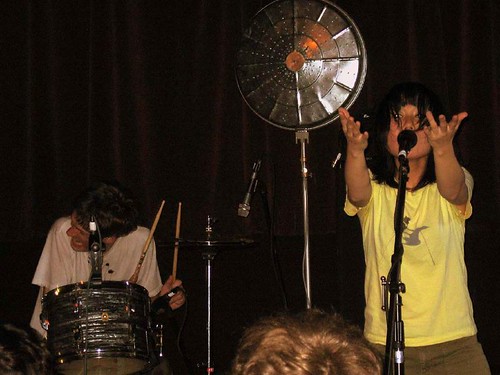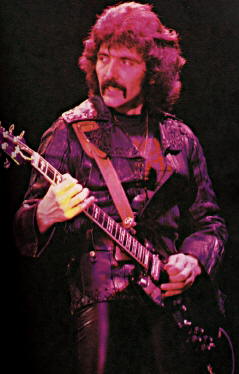The horde has descended. Hundreds of freshmen now crowd the halls of Duke’s East Campus dorms and by some stroke of cosmic weirdness I found myself among them, awash in Natty Light and listening to Dre’s “Let Me Ride,” semi-audible above the din.
I write this facing the reality of leaving school indefinitely. We never gelled, me and Dear old Duke, so I’m high-tailing it to the city to try clawing my way into this terrifying writing business for real.
At the party. This is where the flashbacks come mile a minute, let me tell you. I remember this walk I’m pulling off now, the freshman sideways shuffle. It’s an off-campus party, in the relatively spacious, actually extremely spacious high-ceilinged Erwin Square apartment building, and yet inside the apartment, where seniors and freshmen mixed in a pulsating surge that ran both ways, mutating and shifting, the claustrophobia is reminiscent of some of the worst nights fall semester back in the day waaaaaaay back in ought four, remember? Crammed into Few Quad hallways, my belly squeezing embarrassingly past the foxy ladies as I struggled to wind up in a room where I’d be given beer, shitty beer.
The same bleak realizations may hit a few of these revelers weeks down the line, but not too many, I’d reckon. A surprising amount stick with it long enough to smooch up the ass ladder of fraternal brotherhood and eventually reap the rewards when they sit as kings, watching freshmen fill their rooms and halls, demanding shitty beer.
Having existed at Duke as something of a fringe element, I throw people off at parties like this. They’ve never seen me, or rarely, and a blonde senior girl pops up in front of me with a “hi my name’s Suzy what’s your name,” seemingly having mistaken me for a freshman or a kindergartener.
I explain the situation. She says, yeah, you looked old for 18.
True.
Inevitable that these sights and sounds provoke intense reflection on three years of collegiate mishaps, but all is not dour.
Parked by the keg is a short solid bro with a hat that reads REMINGTON, holding court with a couple of new arrivals. It is one of those totally rare moments where one registers genuine surprise at the fact that the words being said aren’t out of some third tier collegiate virginity-loss caper currently being pounded out of the iBook of some sweaty, desperate Los Angelean:
“DUDE, YOU’RE IN COLLEGE NOW!! YOU’RE GONNA GET LAID! IT’S GONNA HAPPEN!”
“I know, man! My RA said to come to him if we need condoms!”
“Yeah! Yeah man. Totally. It’s like, you can get condoms everywhere, the vending machines, the health center, everywhere.”
The sound of the room is thick and fluttering and I’m unable to keep up with all of it.
“You’re not in high school, bro, you don’t have to go home and do your homework with your mom, man. You wanna go get fucked up you go get fucked up, but you gotta work hard too man, this is Duke. . .”
Indeed, this is Duke. My own fucked-upedness is getting the better of me and I can’t hear much of the rest, apparently Remington’s laying some career advice upon his newfound bro . . .
money isn’t everything you gotta live life man I’m gonna retire ten million, that’s my limit, you know bro, dude breh bra brobrobrehbreuxbro
In the hall I encounter a truly wet freshie named Joe who reminds me he’s the cousin of this dude from my freshman dorm. He’s telling me about when he visited, back in oh fo’ (fo’ sho) and got shithammered in Alspaugh. Sounds about right, I say. He tells me he remembers me playing the guitar, and that he plays too now. He says he remembers me more than almost anything from that visit. He is very drunk. I give him a Parliament and he lights the wrong end.
Outside, smoking and talking to M---- M---- a truly indestructible party monster with an uncanny knack for school, memorization, and all around academics. It never seemed fair, and neither did his “Wolverine-like powers of recuperation,” to quote a popular description, but you couldn’t hold it against the guy, not even with the country club name to end them all, cause he had a big melon grin and loved beer and football and weed, and loved to have fun and ensure that others were entertained as well.
I knock on the door trying to get back in the bay of apartments. It doesn’t open on the outside. Somebody notices when a girl comes up and knocks and he toys with her for a second, a drunken jackal, fucking with her until he finally shoves the door open, smacking her in the forehead with a dull thump. The gaggle of folks nearby dissolves into giggles and amazingly, the only “holy shit, are you all right?” comes from me. Then they see her tears and the way she’s holding her hands over her face and there’s much commotion. I slip inside and wait for an opportunity to leave. It’s all a bit much right now.
Right place, wrong time. Outside I hear it: “Man I love college.”A wet freshman still buying the essential myths. But on my end, faith broken down, smoking a lonely cigarette in front of the bays next to the cars and spent cans of Natty Light dotting the bushes like fantasy gumdrops. Reeling, rocking, gut protesting rumbling but ok, muted by sweet smoke and light beer (have another, along for the ride now, it’s late and this scene has been building for hours)
They’re mostly leaving now and I’m talking to some remaining friends, good ones that I haven’t seen in awhile, and that I’ll be bailing on before too long. Inside awhile for smoking and scribbling and then slowly creeping towards the act of going home.
Waiting for my ride to finish his phone call in a spacious Erwin bay, seemingly deserted now. Losing it a bit swaying a tad but I’ve found an ally, somebody to lean on. Me and the wall, we’re ok.










